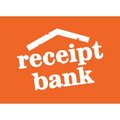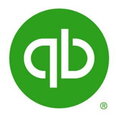Optimizing Business Finances: A Guide to Efficient Bookkeeping Practices
Bookkeeping is one of the most essential tasks for any business. It involves the systematic recording and categorization of financial transactions to ensure that financial reports are accurate and up-to-date. However, bookkeeping can be a tedious and time-consuming process. That’s why it’s important to optimize your bookkeeping practices to efficiently manage your business finances. In this blog post, we’ll discuss your Guide to Efficient Bookkeeping Practices including the best tips and tricks for optimizing your process.
- Keep Receipts and Records
The key to efficient bookkeeping is organization. It’s crucial to keep all receipts and records of business expenses to track your business finances accurately. Don’t underestimate small expenses; even they can add up quickly, so it’s essential to keep track of them. By keeping a record of all transactions, you can identify unnecessary expenses and make informed financial decisions. The more organized you are, the easier it is to prepare financial statements, tax reports, and audits.
- Separate Personal and Business Finances
One of the biggest mistakes business owners make is mixing their personal and business finances. It’s crucial to keep these finances separate, as it can cause confusion and lead to errors in financial statements. Having separate bank accounts and credit cards also simplifies the bookkeeping process. When you keep both finances separate, your personal expenses don’t interfere with your business expenses.
- Automate Your Bookkeeping Process
Automating your bookkeeping process makes the task easier and quicker. You can reduce the possibility of human error by using accounting software to record financial transactions. By automating your bookkeeping process, you can quickly generate reports, calculate taxes, and reconcile bank statements. Accounting software also eliminates the need for manual data entry, reducing the risk of mistakes and saving time.
- Create a Budget
Creating a budget is an essential part of optimizing your bookkeeping process. It’s a roadmap that outlines your business expenses and income for the month, quarter, or year. Budgeting helps you control costs, improve cash flow, and plan for the future. It also helps you identify areas where you can make adjustments to save money. Once you have a budget in place, it’s essential to update it regularly to account for changes or unexpected expenses.
- Seek Professional Help
If you’re struggling to manage your bookkeeping process, it’s a good idea to seek professional help. An expert bookkeeper or accountant can assist you in keeping records, preparing financial reports, and analyzing your financial statements. They can also provide you with valuable insights that can help you make better financial decisions. By outsourcing your bookkeeping, you can focus on running your business and leave the financial management to the professionals.
Efficient bookkeeping practices are crucial to optimizing your business finances. By keeping organized records, separating your personal and business finances, automating the bookkeeping process, creating a budget, and seeking professional help, you can streamline your accounting process and make informed financial decisions. By adopting these practices and monitoring your books regularly, you’ll gain a better understanding of your business’s financial health and ensure that you’re on track to achieving your financial goals. So, start optimizing your bookkeeping practices today and watch your business grow!
If you’re thinking about hiring a bookkeeper for your small business, contact us at BBS Accounting CPA today. We would be happy to discuss your specific needs and how we can help you take your business to the next level.







